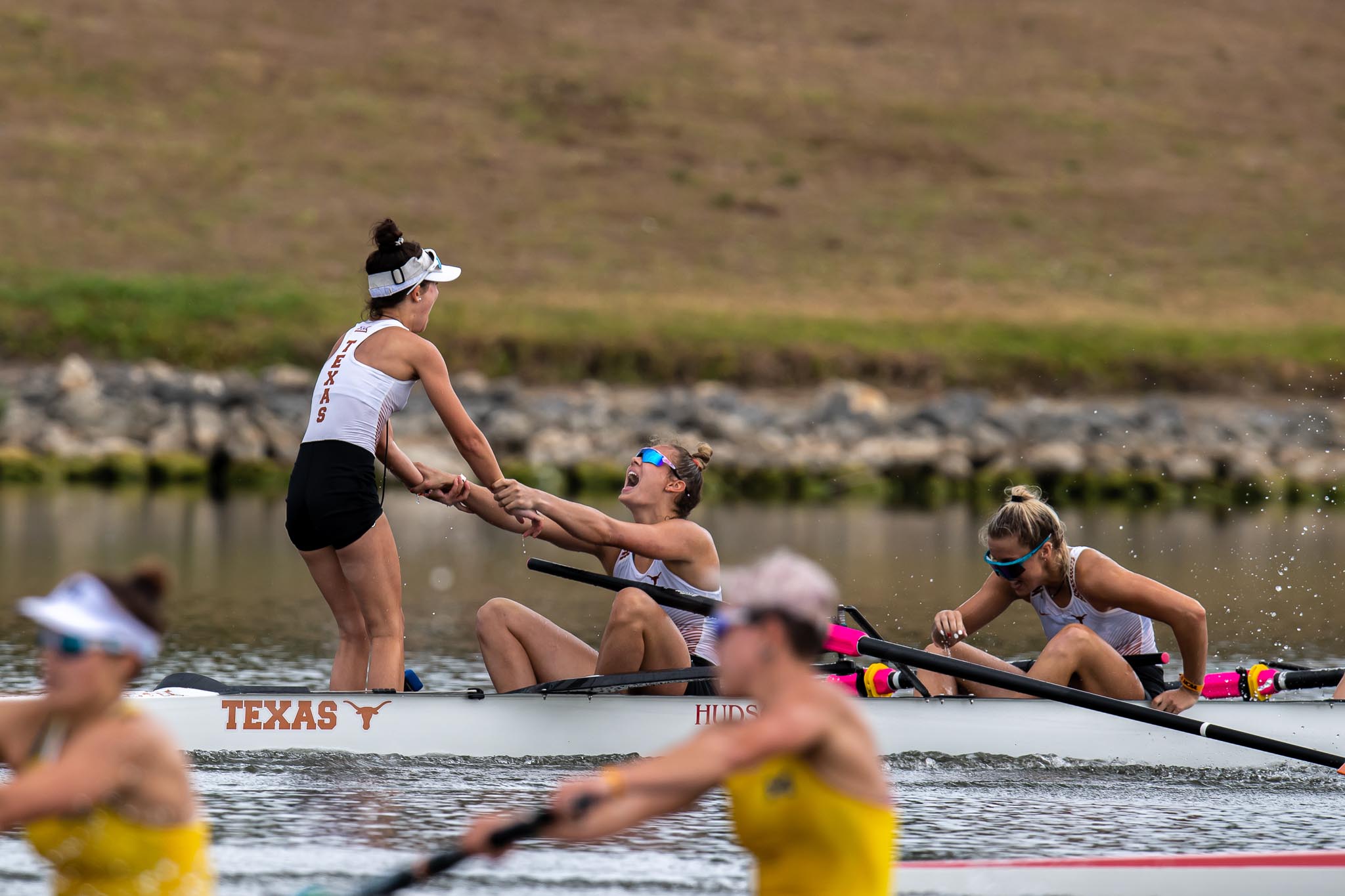BY TAYLOR BROWN
PHOTO BY LISA WORTHY
To continue reading…
Register for free to get limited access to the best reporting available.
Free accounts can read one story a month without paying.
Register for free
Or subscribe to get unlimited access to the best reporting available. Subscribe
To learn about group subscriptions, click here.
Already a subscriber? Login
In rowing, working together is non-negotiable. Teamwork in rowing is beautiful in its simplicity; you must follow the rower in front of you and lead the rower behind you. To be a good teammate, you must focus on making your stroke the best it can be.
One of the most common challenges to teamwork is working closely with people you don’t like or enjoy.
Of course, we would all like to be on teams where everybody gets along and supports each other, but sometimes that is not the case, and it certainly doesn’t have to be the case to win.
Team cohesion refers to the interpersonal relationships on a team, and how they affect performance. Team cohesion breaks down into two areas: task cohesion and social cohesion.
Task cohesion is driven by the sole purpose of achieving a collective task or goal as a team. Many great teams include key players who are not friends but trust each other to execute on game day.
Social cohesion is driven by the relationships on the team. Teams that have a strong bond often are highly motivated by that bond; they have each other’s backs not because they must but because they want to. Though appealing, high social cohesion is not necessary for success.
The mark of a great teammate is the consistent ability to communicate clearly and to show respect and humility to all members of the team, not just your friends. You’re certainly not expected to be friends with all your teammates, so here are some guidelines to being a great teammate, even when you don’t see eye to eye.
In his book The Four Agreements, Don Miguel Ruiz lays out a blueprint for personal freedom. He explains how to be in relationships with other people in a way that does not tether your well-being to their actions. His wisdom is as true on a team as it is for life.
Be Impeccable With Your Word
Your words express meaning. Speak with truth and integrity to support yourself and those around you. Do not speak what you do not know. In the minds of your teammates, your words can grow into beliefs about themselves and others. Speaking out of integrity or truth can have ripple effects in team culture and success.
Take Nothing Personally
People see what they want to see. When someone says something to you, it is from their truth, not yours. As a teammate, taking nothing personally will give you the power to choose what you agree with and what you do not. Whatever your choice, be impeccable with your words in response.
Don’t Make Assumptions
It is our nature to create meaning through pattern-making. Making assumptions is like completing the puzzle of someone’s life without first having all the pieces. The complexity of situations makes it easy to assume you know the answer. As a teammate, seek to understand the complexity. Ask questions, get curious, and be clear, which will help your words be impeccable.
Always Do Your Best
You will stumble in your quest to be impeccable with your word, take nothing personally, and not make assumptions. Your best will vary from day to day and even moment to moment. When you try your best, you will live in integrity, truth, and power.
Being a great teammate, even to those with whom you are not friends, means being intentional with your communication and your perceptions of your interactions. Reactivity and impulsivity rarely make a great teammate. Use these four reminders and you’ll be on your way to building strong bonds with all of your teammates as well as improving your personal relationships in general.

